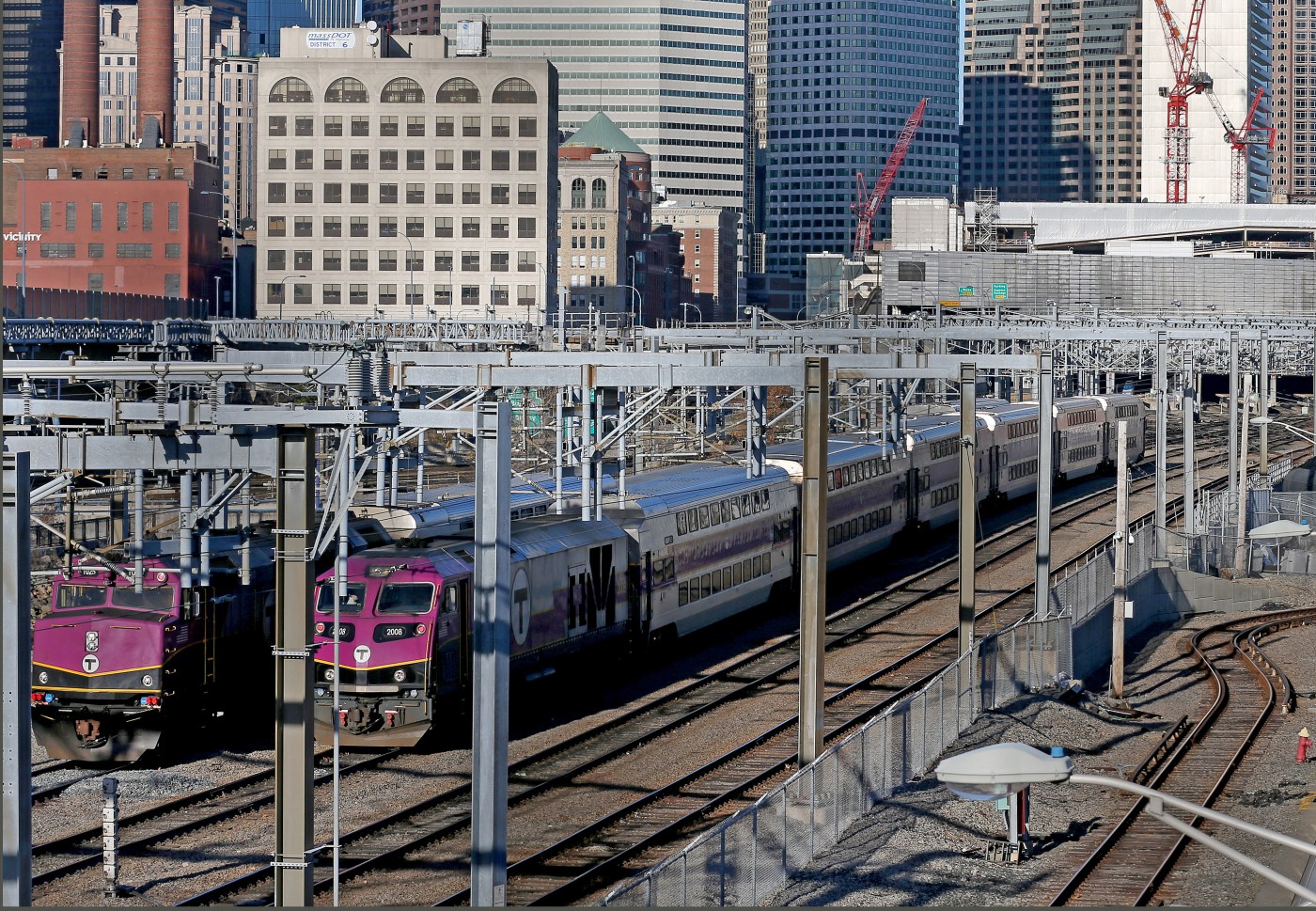
MBTA says Commuter Rail ridership hit pre-pandemic peak of 90%
The MBTA said Commuter Rail ridership reached a pre-pandemic peak of more than 90% in October, a boost largely driven by Halloween travel to Salem and a diversion on the Red Line that led many riders to seek alternative transportation.
Figures released Friday by the T show that ridership hit 90% on Oct. 2 and steadily increased each week, reaching 94.8% by Oct. 23.
The Oct. 23 number represents a roughly 10% boost from about the same time in September, and a 12% increase from the beginning of that month, T officials said.
“Seeing ridership on Commuter Rail return and grow consistently to reach this milestone demonstrates that safe, reliable and more frequent service can bring riders back to mass transportation,” MBTA General Manager Phillip Eng said in a statement.
“We look forward to continuing to build upon this success to identify new ways to improve service, get more people out of cars, and protect our environment by reducing our carbon footprint.”
Three factors drove the increase in ridership, which was largely due to three lines, the T said.
The Franklin Line saw a 20% boost from September to October, which the agency attributes to the new fall/winter schedule service increases.
The Fairmount Line experienced a 35% increase in ridership during the Red Line Ashmont Branch and Mattapan Line diversion, when service was shut down for construction.
Halloween travel to Salem also resulted in “record ridership” on the Newburyport/Rockport Line, the T said.
Related Articles
Editorial: MBTA fixes rival cost of Big Dig
Massachusetts ‘stuck in neutral’ on addressing transportation woes: Poll
MBTA Police chief says new contract raises will boost competitiveness
MBTA says it will cost $24.5 billion to bring system into ‘state of good repair’
Boston girl accused of assaulting 84-year-old man at MBTA station
Whether the new numbers are sustainable remains to be seen, but they represent a positive sign for a transit agency that saw ridership plummet to approximately 10% of pre-COVID figures during the height of the pandemic.
The T said there has been a “steady increase in ridership” since it rolled out an all-day service model with its Commuter Rail operator Keolis in the 2021 spring/summer schedule.
“Since the start of the pandemic, we have worked closely with the MBTA to adapt our service to meet the changing needs of our passengers,” Abdellah Chajai, CEO of Keolis Commuter Services, said in a statement.
“These latest ridership trends are proof that the all-day service, and more flexible fare products are meeting our passenger’s needs.”


